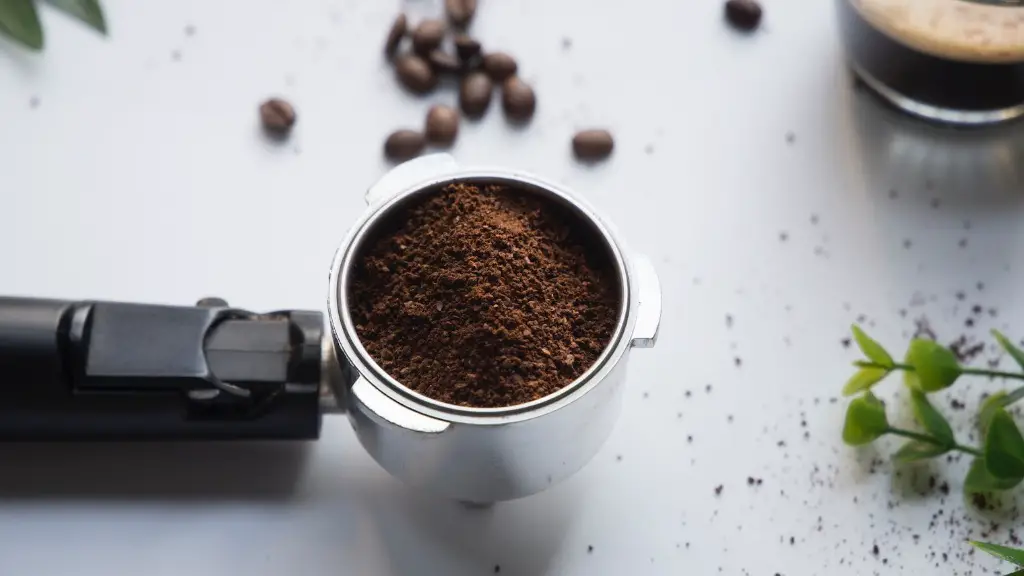The Caffeine Connection
Coffee is one of the world’s most popular beverages, and many find that it provides a much-needed caffeine boost in the mornings. But for some, caffeine consumption can be a source of anxiety. It can put the body and mind into a state of alertness and stress, which can lead to an exacerbation of anxiety levels. So why does drinking coffee cause some people to become anxious?
The Biology Behind Anxiety
The reason why coffee can cause an increase in anxiety levels has to do with physiology. When people drink coffee, their bodies begin to break down the caffeine molecules, releasing a jolt of energy into the body and the brain. This stimulation can jumpstart the fight-or-flight response, which triggers the body’s release of stress hormones, such as cortisol and epinephrine.
Cortisol aids in the regulation of glucose in the body, and helps to reduce inflammation. However, when this hormone is released in large amounts, it can further heighten feelings of anxiety, leading to feelings of panic and hyper-arousal.
Similarly, epinephrine helps to put the body and brain on alert, increasing the heart rate and blood pressure. This hormone takes longer to wear off than cortisol, and this lingering alertness can further increase feelings of anxiousness.
The Mental and Emotional Impact of Anxiety
It’s not just the physiological effects that account for feelings of anxiousness, but also the mental and emotional aspects of it. When someone has an underlying tendency towards anxiousness, the caffeinated stimulation of coffee can serve to further amplify those feelings.
These heightened anxiety levels can lead to a range of mental health problems, such as worrying excessively, feeling tense or irritable, or struggling to concentrate. Coffee can also cause physical symptoms, such as clenched muscles, dry mouth, nausea, palpitations and insomnia, which can further add to the unease.
Do I Have To Avoid Coffee Entirely?
Not necessarily. In moderate doses, coffee can still provide a welcomed boost of energy and alertness, but it is important to be aware of your own individual response to caffeine.
If coffee does seem to worsen your anxiety levels, it might be helpful to try drinking coffee with less caffeine, or to avoid it entirely. It is also important to keep in mind that anxiety can be managed in other ways, such as through cognitive behavioural therapy, regular exercise, and relaxation techniques.
Addressing the Root Cause of Anxiety
At any rate, it is important to try and address the underlying cause of the anxiety, such as any traumatic experiences or difficult emotions. A professional therapist can help to identify and resolve any negative thoughts and behaviours that might be exacerbating your anxiety levels.
It is also beneficial to focus on healthier lifestyle behaviours, such as getting more sleep, eating more nutritious foods, minimising stress, and engaging in relaxation activities. With the right support, it is possible to reduce the intensity of your anxiety and learn to manage it more effectively.
Conclusion
For those who suffer from anxiety, it is important to remember that coffee is not the enemy. By focusing on lifestyle behaviours and practising relaxation techniques, it is possible to mitigate the symptoms of anxiety. It is also beneficial to address any underlying causes of anxiety, in order to make the necessary changes to reduce its intensity.
Alternative Relaxation Techniques
In addition to decreasing or eliminating caffeine consumption, it can be beneficial to incorporate relaxation techniques into your routine. Examples of alternative relaxation techniques include breathing exercises, visualization, progressive muscle relaxation, yoga, and mindfulness. Each of these can help to reduce feelings of anxiousness and tension, and can be practiced in the comfort of your own home.
Support From Friends and Family
It is also important to have support from those around you. Talk to your family and friends about what you are going through and make sure to reach out for help when needed. Also seek out a support group where you can connect with others who may be going through similar struggles.
Expert Help Is Available
Of course, professional help from an expert therapist or medical provider can also be invaluable in managing anxiety. Asking for help is not a sign of weakness- it is a sign of strength and a step towards taking control of your wellbeing.
Living Life Fully
In order to live a fulfilling life, it is important to acknowledge and greet your anxieties head on. By developing a comprehensive approach of addressing lifestyle behaviours, practising relaxation techniques, and seeking out professional help, it is possible to reduce your anxiety levels and gain back some control. It is normal to feel anxious occasionally, but by exploring ways to better manage it, it is possible to experience significant improvements in overall wellbeing.


